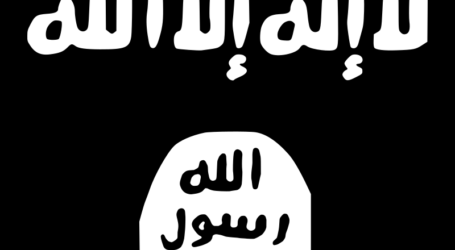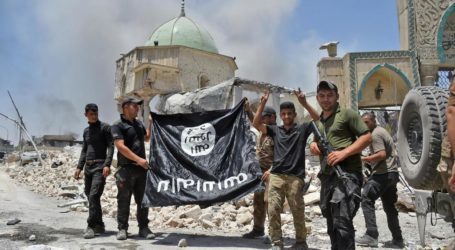The Internal Structure of Jaysh Khalid bin al-Waleed: Analysis
These documents do require some analysis and explanation that the reader may understand them fully. Firstly, it should be realized that the Islamic State’s propaganda is highly misleading. Wilayat Hawran was not suddenly established in summer 2018 but actually existed well before it was announced. Thus, the wali (“provincial governor”) of Hawran- Abu Ali al-Safadi, originally from the Deraa town of Sheikh Maskeen- was the real highest authority in the Yarmouk Basin area, rather than the general amir of JKBW (aka the amir of the Yarmouk Basin area).
At the top alongside the wali of Hawran was his Majlis Shura consisting of six other members. Leaving aside the infiltrator, the other members were as follows:
– Abu Osama al-Der’awi: originally from Sheikh Maskeen. He was the general financial official for Wilayat Hawran.
– Abu Mus’ab (aka Abu Suleiman Barqa): originally from the north Deraa village of Barqa. He had been an official in Fawj al-Qa’qa’ (“The Qa’qa’ Regiment”), which functioned as an Amn Khariji (“external security”) unit for the Islamic State, responsible for operations against enemies of the Islamic State inside their own territory. For references to Fawj al-Qa’qa’, see this testimony published by a former ‘extremist’ member of the Islamic State, who mentions that in Deraa province, problems were created by the fact that at one point there were three Amn Khariji apparatuses for the Islamic State in the area. One affiliated with Fawj al-Qa’qa’, another with JKBW, and another affiliated with Wilayat Dimashq. Fawj al-Qa’qa’ in southern Syria was subsequently integrated into JKBW, and Abu Mus’ab became head of JKBW’s Amn Khariji apparatus.
Prior to the merging of the Fawj al-Qa’qa’ contingent into JKBW, a certain Abu al-Bara’ al-Tel (originally from Tel Shihab, from which many JKBW members came) was managing some Amn Khariji contingents for JKBW. He had headed the Amn Khariji apparatus for Liwa Shuhada’ al-Yarmouk, one of the groups that became JKBW. After JKBW was initially formed in May 2016, an Amn Khariji apparatus for JKBW was led by Abu Ayyub al-Masalama, who had been the amir of Harakat al-Muthanna (another group that became JKBW), but he subsequently fled the Yarmouk Basin in summer 2016, as he did not really buy into Islamic State ideology.
– Abu Suleiman al-Shami: from Quneitra and of Palestinian-Syrian origin. He had resided in the al-Hajar al-Aswad suburb of Damascus. He headed the Shari’i office of JKBW.
– Abu Abdullah Hamam al-Jazrawi: the overall head of the judicial system in the Yarmouk Basin. As his kunya suggests, he was originally from Saudi Arabia. He came from the Islamic State’s territories further north, replacing Abu Ali Saraya (originally from Sheikh Maskeen and a notorious figure in JKBW).
– Abu Hamam al-Shami: originally from Barqa. He was the last general amir of JKBW.
One will also note that a body by the name of “Oversight and Tracking Committee for Jaysh Khalid bin al-Waleed” appears in the documents. This body’s existence is corroborated by an internal JKBW document that emerged in the final weeks of JKBW’s existence, denying rumours that JKBW had taken up front lines with rebel groups against the Syrian government and its allies, making it clear that it still considered those rebel groups apostates who must repent and give allegiance to the Islamic State. One will note that the document is signed by a certain “Abu Ibrahim al-Shami” as head of Oversight and Tracking. “Abu Ibrahim al-Shami” is actually the same person as Abu Ali al-Safadi.
As for the hierarchical structure of JKBW’s various departments and offices in the first office, most of the names are self-explanatory. For reference for the reader:
– The judge: i.e. overall head of JKBW’s judicial system.
– Zakat: Islamic alms taxation to help the poor.
– Hisba: Islamic public morality enforcement (“commanding what is right and forbidding what is wrong”).
– Da’wa: Islamic religious outreach and proselytization.
– Ruqyah office: dealing with exorcism.
– Spoils: dealing with spoils of war seized from the enemy.
Some additional administrative and military matters to note:
– A financial department, as highlighted earlier.
– A public relations sector, which is attested in an internal JKBW document that emerged in June 2018. The document shows the public relations amir at the time was one Abu Fawaz Hashish al-Shammary, originally from Tel Shihab and a lawyer by background. The public relations sector also worked to recruit people from the masses to fight the Syrian government forces and their allies in the final weeks of JKBW’s existence.
– A head of training camps, who would come under the military administration. There would also have been a Shari’i head for the training camps.
– An official dealing with new recruitment into JKBW and personnel monitoring. He presumably would have worked with the public relations sector in the attempts to recruit from the masses in the final weeks of JKBW’s existence.




